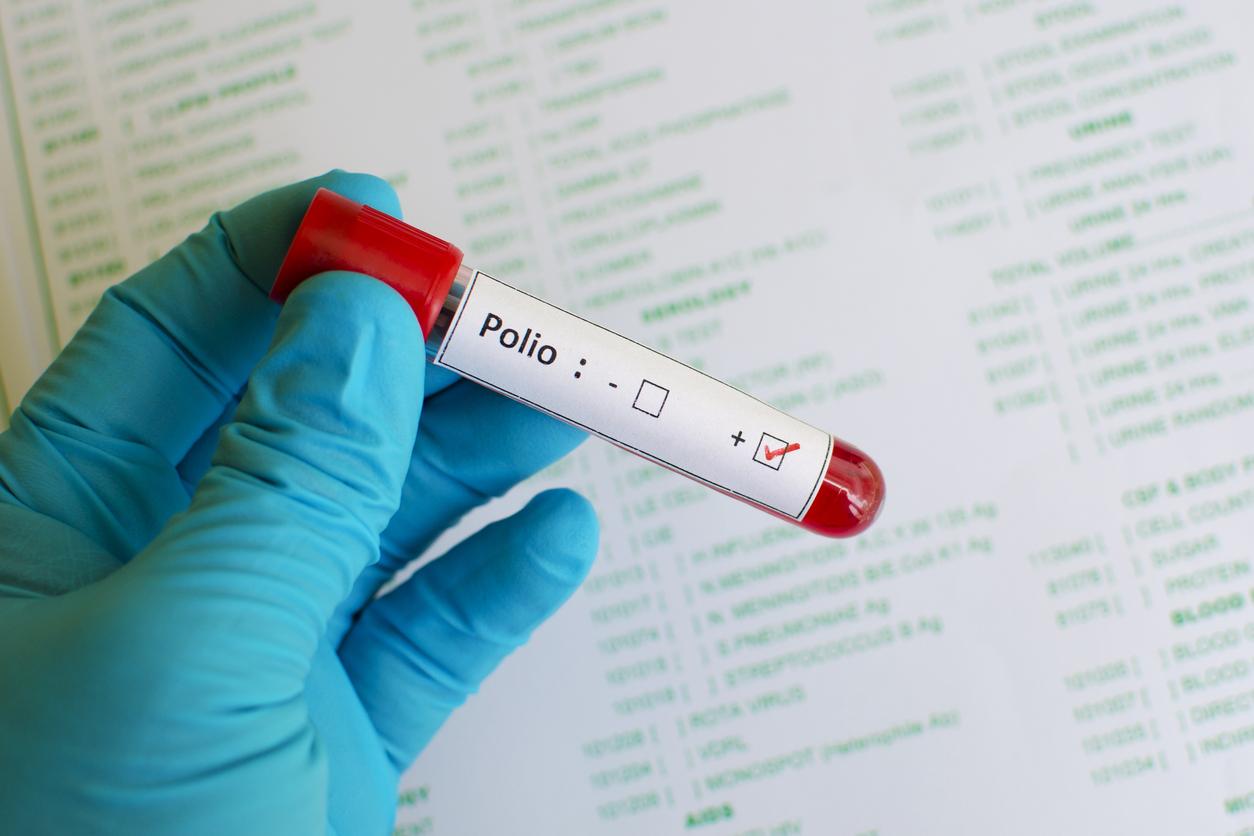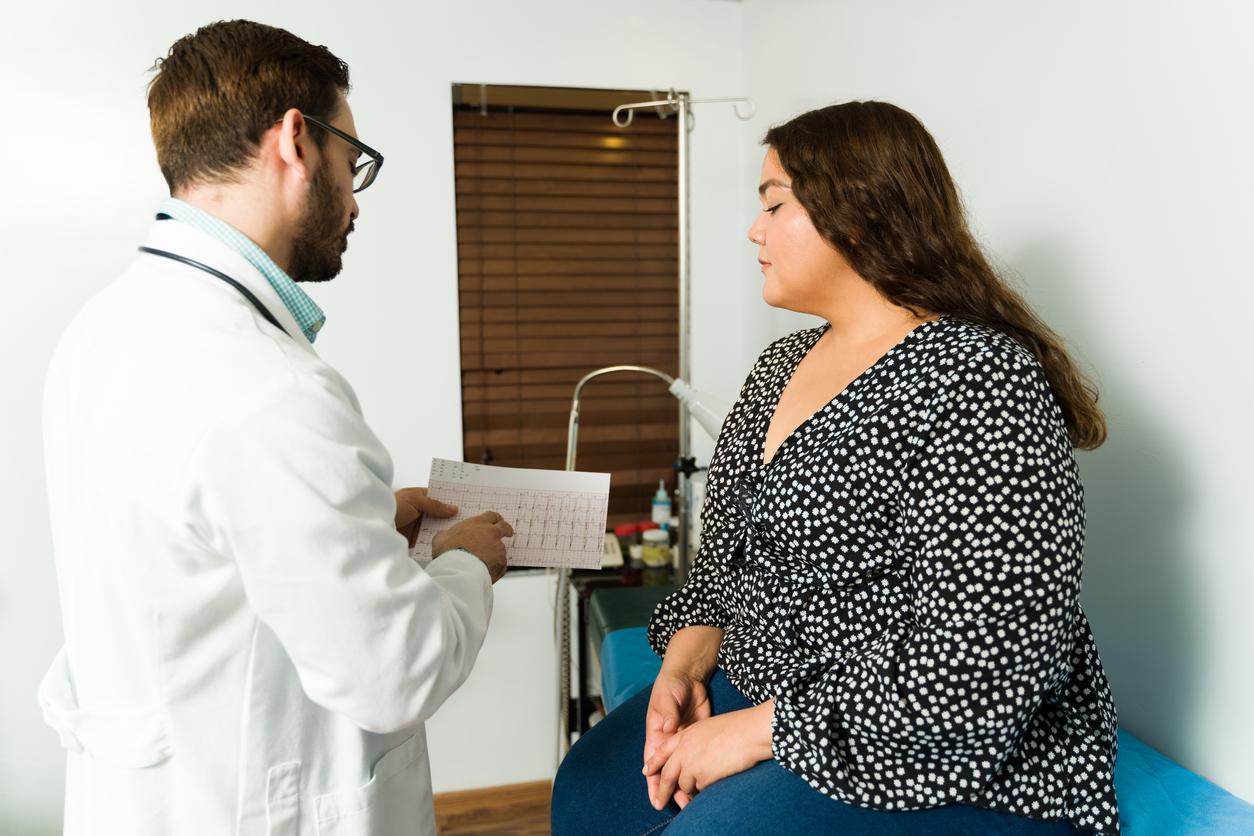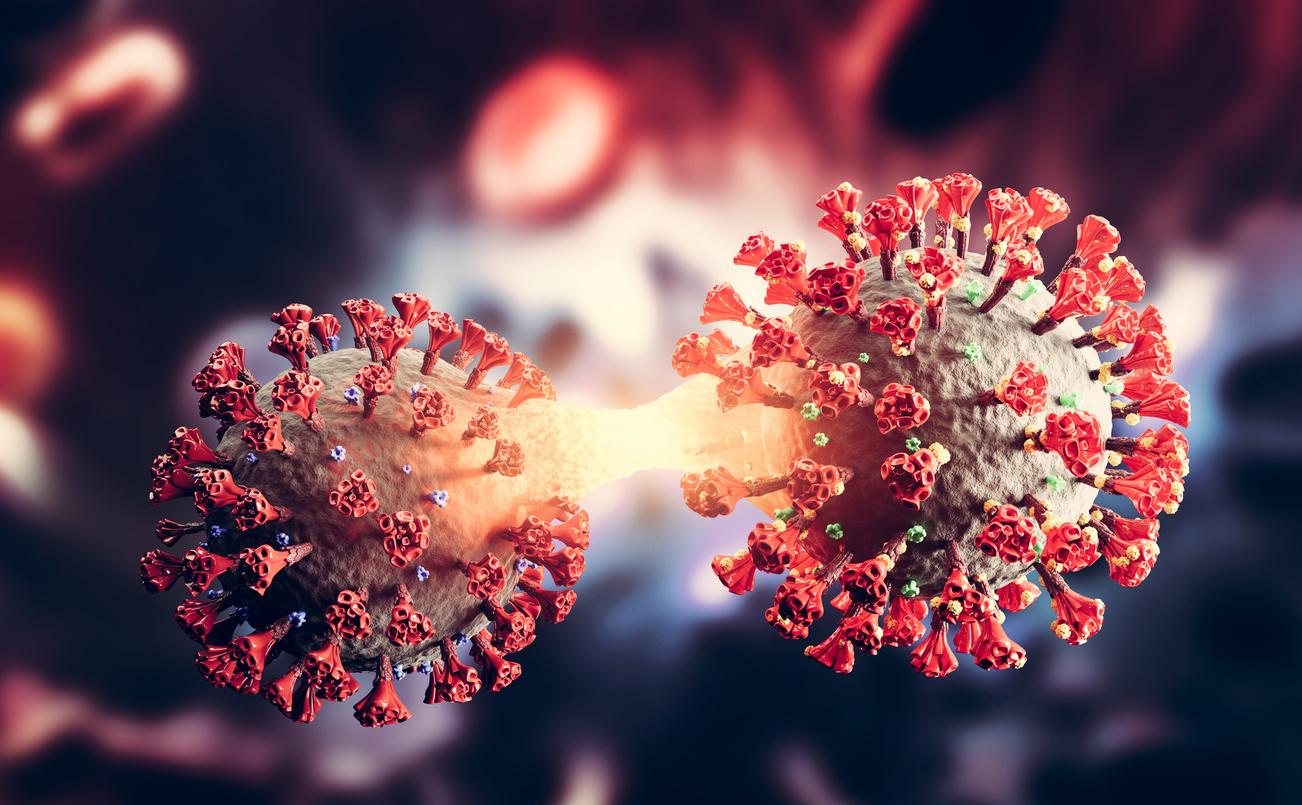Polio viruses have been detected in wastewater from several European countries including Spain, Germany and the United Kingdom, recalling that this very contagious disease is not completely eradicated.

- The polio virus has been detected in wastewater in Europe, especially in Poland, Spain, Germany, Finland and United Kingdom.
- These polioviruses are genetically linked to a strain that emerged in Nigeria several years ago.
- There is no treatment against polio. The main measures to protect themselves are based on hygiene and vaccination.
Poliomelitis, better known under its nickname “Polio”, is a highly infectious disease that has almost been eradicated. However, the threat is not completely extinguished as recalls the discovery of the virus responsible for pathology in wastewater in Europe in recent months.
These type 2 poliovirus detections (VDPV2) also raise strong concerns among scientists and health authorities, including that of a risk of reintroduction and circulation of the virus on European territory.
Poliomyelitis in wastewater: what is the situation in Europe?
Polioviruses derived from type 2 vaccine strains (VDPV2) were detected in wastewater samples collected in different cities in Europe: Barcelona (Spain), Warsaw and Rzeszów (Poland), Tampere (Finland) as well as several cities from Germany and the United Kingdom. The analyzes revealed that these viruses “are genetically linked to a strain that emerged in Nigeria several years ago” And which has mainly circulated in the countries of North and West Africa.
To date, no case of polio has been identified in the countries concerned. “According to international and European authorities, the most likely hypothesis of these detections is that of repeated introductions of polioviruses from regions where this CVDPV2 is currently circulating” currently “circulates”explains Public Health France in its press release.
WHO calls Europeans to vigilance
Faced with the traces of this very contagious pathology and which can lead to paralysis, WHO calls on European countries to remain vigilant. “The region has been free from endemic polio since 2002. However, if polioviruses are spreading somewhere in the world, they may also be imported. These imports can cause epidemic outbreaks if the virus manages to infect non-vaccinated people, as was the case in Tajikistan and Ukraine in 2021, as well as in Israel and the United Kingdom in 2022 “warned the World Organization in a press release published in last November.
In France, the risk of poliovirus is currently estimated “low”, in particular thanks to vaccination coverage with 3 doses already very high (96 % in 24 -month -old infants born in 2020). Nevertheless, the highlighting of Type 3 VDPV in Guyana in 2024 recalled that the risk was not zero, “Particularly in areas or within certain groups of populations with a lesser use of the health system and access vaccination (migrants, socially disadvantaged populations, immigrant populations, etc.) within which the vaccine covers are lower”specifies the organization.
Poliomelitis: How to protect yourself?
The polio virus is mainly transmitted by Oro-Fecale. That is to say through soiled water and food contaminated by the stools of infected people. This very contagious disease affects the nervous system. If the majority of patients are asymptomatic, the most serious cases may have irreversible, even fatal paralysis. “Without palliative measure, between 5 and 10 % of paralyzed patients die by asphyxiation due to the paralysis of the muscles ensuring ventilation”noted The Pasteur Institute.
These forecasts are all the more alarming since there is no curative treatment against polio. Hygiene measures (effective water treatment, washing vegetables, etc.) and vaccination remain the only way to protect yourself. To reduce the risk of virus circulation, the complete vaccine scheme rate (3 doses) must reach 90 % of the population. Which leads Robb ButlerDirector of the Division of Transmitted Diseases, the Environment and Health at WHO/Europe to be entrusted: “LA vaccination of all vulnerable children is essential to prevent the virus from leading to life paralysis or a fatal outcome. “
French health authorities ensure that they maintain their “vigilance” facing the “Unusual situation” observed in Europe.
For the record, the vaccination of infants against polio is compulsory in France. Reminders during life are recommended (and compulsory in certain professional circles).
THE Calendar for vaccination against polio is as follows:
Infants and children (up to 13 years old):
- Primovaccination at the age of 2 months, 4 months and 11 months (3 doses).
- Reminders at 6 and between 11 and 13 years old (1 dose).
Adults (20 to 65 years old):
- Reminder at 25: 1 dose.
- Reminder at 45: 1 dose.
Seniors (from 65 years old):
- Reminder at 65: 1 dose, then a reminder every ten years.

















